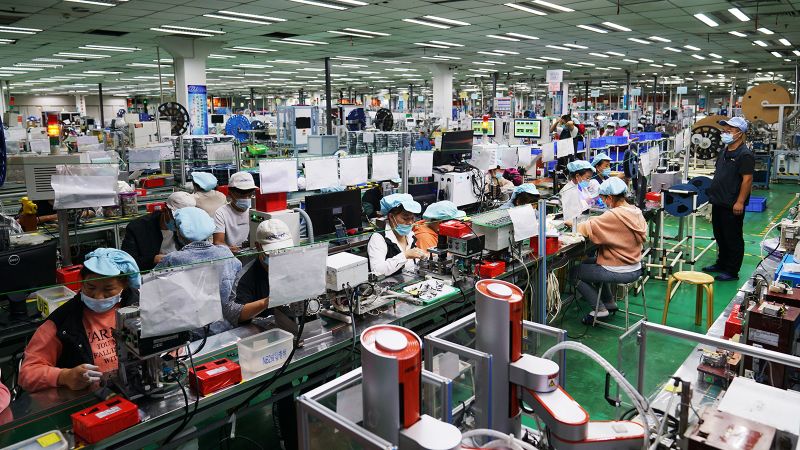Four employees of Taiwan’s Foxconn have been detained in China on suspicion of breach of trust. The circumstances of the case are considered quite strange by Taiwan’s Mainland Affairs Council. The employees were detained in Zhengzhou, the capital of Henan province, home to a major Foxconn plant assembling Apple’s iPhones. The council suggested that corruption and abuse of power by Chinese security officials may be involved in this case. Foxconn declined to comment on the situation, while the council stated that Foxconn had not suffered any losses due to the employees’ actions. The council called on relevant departments in China to investigate and address the issue promptly.
In response to the detainment of the Foxconn employees, Taiwan’s government raised its travel warning for China in June. Citizens were advised not to travel to China unless absolutely necessary, following a threat from Beijing to execute those deemed “diehard” Taiwan independence supporters. China claims Taiwan as its own territory, despite objections from Taipei’s government. Taiwanese companies have invested heavily in China over the years, attracted by a common culture and language, as well as lower costs. The relationship between Taiwan and China has been complex, with political tensions often affecting business operations and travel between the two entities.
The detainment of the four Foxconn employees sheds light on the challenges faced by Taiwanese companies operating in China. Concerns over corruption and abuse of power by Chinese officials have added to the complexities of cross-strait relations between Taiwan and China. The incident has damaged the confidence of companies doing business in China, urging swift action from the Chinese authorities to investigate the situation. Foxconn’s statement that the company did not suffer any losses as a result of the employees’ actions indicates that the impact on the company may be minimal. However, this case underscores the risks and uncertainties faced by foreign businesses in China.
The call for an investigation and resolution of the Foxconn case highlights the need for transparency and accountability in cross-border business dealings. Both Taiwan and China have a vested interest in maintaining stable economic relations, given the significant investments made by Taiwanese companies in China. The detainment of the Foxconn employees threatens to disrupt these relations, prompting concerns about the impact on business operations and investment opportunities. The Taiwan Mainland Affairs Council’s statement emphasizes the importance of addressing the issue promptly to mitigate any potential damage to bilateral trade and economic ties.
The tensions between Taiwan and China have been exacerbated by political disagreements and territorial disputes, which have spilled over into economic affairs. The detainment of the Foxconn employees underscores the delicate balance that Taiwanese companies must navigate when conducting business in China. Despite shared cultural and linguistic ties, the political differences between Taiwan and China continue to pose challenges for companies operating in both markets. The incident serves as a reminder of the complexities and risks of doing business in China, where political considerations can influence business decisions and operations. A swift resolution to the case is essential to restoring trust and confidence in the business environment for Taiwanese companies in China.













